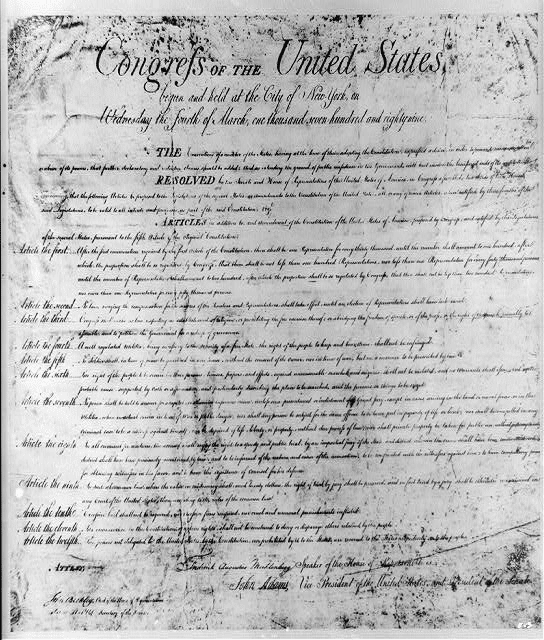America is a melting pot of various cultures, faiths, and backgrounds. Consequently, there is no officially endorsed religion.
To ensure that everyone’s beliefs and convictions are respected, our nation has established a firm separation between church and state. This way, everyone in our society can be accommodated.
But the most pressing issue is this:
Does disregarding the separation between religion and government go against the Constitution?
Not directly, but it does suggest that the government should take steps to ensure religious freedom. This is a deciding factor when it comes to determining if certain practices are unconstitutional.
The phrase “Separation of Church and State” itself isn’t part of the first amendment, and some people feel that current laws limit their religious freedom. Consequently, disregarding the divide between religion and government could be viewed as a violation of the Constitution.

The idea is that Americans are free to practice their religion and follow its customs, with no favoritism to any specific faith.
Beyond this, the Establishment and Free Exercise Clauses within the amendment help to protect those with faith and those without.
It states, “Congress shall make no law respecting an establishment of religion, or prohibiting the free exercise thereof…”.
Thomas Jefferson himself believed that by doing so, the United States Constitution would create “a wall of separation between Church & State.”
Interpreting the Constitution To Handle Cases of Separation of Church and State
The problem when we have this disconnect between President Jefferson’s words and the text of the constitution is that it becomes open to interpretation.
Some people feel that Jefferson’s explanation is enough to give further weight to the Establishment clause and Free Exercise clause.
Others, however, believe that the text of the Constitution should be interpreted literally and that the intent of the Founding Fathers should not be given more weight than the document itself.
While this approach takes the interpretation of the Constitution more literally, it can be argued that it does not necessarily lead to better decisions.
In any case, the Supreme Court must be the ultimate arbiter when it comes to interpreting the Constitution and deciding cases involving the separation of church and state. The Court has held that the Establishment Clause prohibits the government from making any laws that establish or support a particular religion, while the Free Exercise Clause allows citizens to freely practice their own religion.
The Court has also held that the government may not favor one religion over another or use religion as a basis for making public policy decisions. Ultimately, the Court’s job is to interpret the Constitution and make decisions on how it applies to the particular facts of each case.

Religion in Federal Government and State Affairs
There is the belief that strict boundaries should stop religious beliefs and practices from entering federal government and state affairs, especially in public education.

Get Smarter on US News, History, and the Constitution
Join the thousands of fellow patriots who rely on our 5-minute newsletter to stay informed on the key events and trends that shaped our nation's past and continue to shape its present.
On the other side, some focus on the first amendment rights to practice religion and the lack of clarity in the constitution. Because there is no direct quote forbidding religious expression in these situations, Americans feel free to blur those lines where it suits their interests.
The Paradox of Freedom of Religion and Its Use in Society
Freedom of religion is a card that many people play when defending their rights, and often justifiably.

The First Amendment states that all Americans are free to follow their faith, whether Christian, Jewish, Muslim, Atheist or of no fixed religion. This means anyone can go to a place of worship, enjoy religious holidays, and express their beliefs.
When religious beliefs begin to threaten the freedoms of others, it can lead to increased conflict and tension between people of different beliefs.
Separation of Church and State and the Pledge of Allegiance
One ongoing talking point regarding the separation of church and state is the Pledge of Allegiance in the public school system.

This text, recited by school children, talks about a nation “under God,” with the expectation that children of all faiths will recite the line, although it isn’t mandatory.
This part of the pledge was a late addition, as the original had no religious affiliation. There are calls for a bill to revert the pledge to one with no reference to God to better suit the diversity of children in the school system.

Christian parents, teachers, and lawmakers are against this, but many strongly feel this pledge is unconstitutional.
Important Court Rulings Separating Church From the State School System
Support for changing the pledge and enforcing the separation of church and state in schools comes from a 1962 court ruling.
While children are encouraged to recite the pledge concerning God, it is unlawful to have mandatory prayers in schools.

The Supreme Court ruled that doing so violated the Establishment and Free Exercise Clauses of the First Amendment.
Following this, there have been other rulings relating to religion in schools. In 1987, the Creation Act was struck down, which meant that schools did not have to teach creation as an alternative to evolution.
In 1989, creating school displays that focused on one religion was no longer permissible.
The Motto: In God We Trust
The phrase In God We Trust is permitted in public and government buildings in many states and is also present in the national currency.

There was a vote to change the motto in 2013, but the majority in the House of Representatives voted to retain it.
Public Consensus on Separation of Church and State?
Away from the court system, there is a divide in opinion on how much the government should separate church and state. A 2021 survey showed that 54% favored the enforcement of strict separation, and 19% opposed it. It is also notable that 27% either had no view or declined to say.
When looking at more specific issues, 30% believed that teachers should be able to lead Christian prayers, and 39% that cities should be able to put religious symbols on public property.
Meanwhile, 69% did not want the federal government to declare a national religion, and just 13% felt the government should favor Christian values.

The Constitutional Separation of Church and State in America
Many laws are in place to help separate church and state to protect religious activity and freedom.
Some feel it goes too far and limits religious expression in public education and public spaces, while others think it could be stronger. Either way, it is a contentious issue.

One Response
Yes they have no business being put together. Ppl need to understand the words in the constitution.. like the word separate